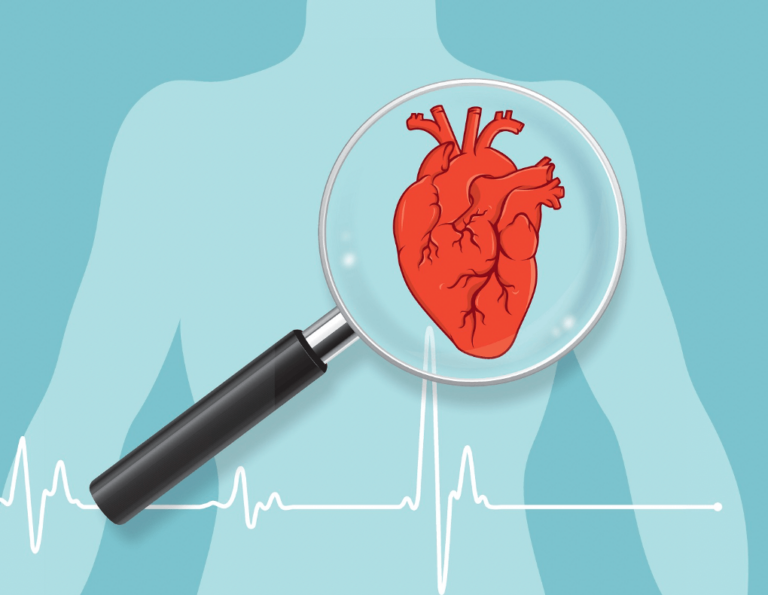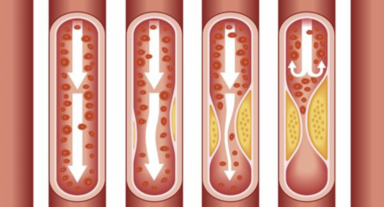Navigating Menopause: A Heart Specialist’s Perspective on Heart Health
Menopause is a pivotal phase in a woman’s life, demanding careful attention to heart health in order to mitigate the associated risks of cardiovascular diseases.
Hear from our heart specialists through this blog to gain valuable insights into the prevalent challenges faced by women during menopause, their direct impact on heart health, and discover actionable steps to embrace a healthier, heart-conscious lifestyle.
#MenopauseAwareness #HeartHealth #EmpoweredLiving
Human beings are acutely aware of the myriad ways our bodies can change as we age. One of the significant transitions that women experience is menopause – a natural biological process marking the end of their reproductive years. Menopause, which usually occurs between the ages of 45 and 55, brings about various physical and hormonal changes that can impact overall health, particularly heart health.
Let’s break down how menopause affects the cardiovascular system and proactive steps for women to safeguard their heart health during this critical phase of life.
Menopause and Its Impact
Menopause is accompanied by a decline in estrogen levels, a hormone that is directly responsible for maintaining cardiovascular health. Estrogen helps regulate cholesterol levels, promotes healthy blood vessel function, and has a protective effect on the inner lining of the arteries. As estrogen levels decrease during menopause, women become more susceptible to heart-related issues.
Risk Factors
- Elevated Cholesterol Levels: The decline in estrogen often leads to an increase in low-density lipoprotein (LDL) cholesterol, commonly known as ‘bad’ cholesterol. High levels of LDL cholesterol can contribute to the buildup of plaque in the arteries, restricting blood flow and increasing the risk of heart disease.
- High Blood Pressure: Changes in hormonal balance can also result in elevated blood pressure, which is a significant risk factor for heart attacks and strokes.
- Weight Gain: Many women experience weight gain during menopause, especially around the abdominal area. Excess weight, particularly visceral fat, can contribute to insulin resistance and inflammation, both of which are detrimental to heart health.
- Reduced Physical Activity: Hormonal changes and associated symptoms such as hot flashes and fatigue may discourage women from engaging in regular physical activity. Physical inactivity can lead to weight gain and complicate cardiovascular health.

Proactive Steps for Heart Health
- Staying Active: Engaging in regular physical activity, such as aerobic exercises, strength training, and yoga, can help control weight, lower blood pressure, and improve overall cardiovascular health.
- Heart-Healthy Diet: Adopting a balanced diet rich in fruits, vegetables, whole grains, lean proteins, and healthy fats can help manage cholesterol levels and maintain a healthy weight.
- Quit Smoking: Smoking is a significant risk factor for heart disease. Quitting smoking can dramatically improve heart health and overall well-being.
- Stress Management: Chronic stress can negatively impact heart health. Practices such as meditation, deep breathing exercises, and hobbies can help manage stress levels effectively.
- Regular Health Check-ups: It’s essential for women going through menopause to have regular check-ups with healthcare providers. Monitoring blood pressure, cholesterol levels, and other heart-related indicators can aid in early detection and prevention of heart disease.
- Hormone Replacement Therapy (HRT): For some women, hormone replacement therapy may be a viable option to manage menopausal symptoms and potentially reduce the risk of heart disease. However, HRT should be carefully discussed with a healthcare provider, weighing the benefits and risks based on an individual’s medical history and overall health.
Menopause is a natural phase of life that every woman goes through. By being proactive about heart health during this time, women can mitigate the risks associated with hormonal changes and aging. Implementing a heart-healthy lifestyle, staying physically active, and seeking medical guidance when needed are essential steps toward maintaining a strong and healthy heart during and after menopause.
Remember, your heart is what keeps your body running smoothly. Take care of it, and it will take care of you.
CATEGORIES: Heart Condition Management






